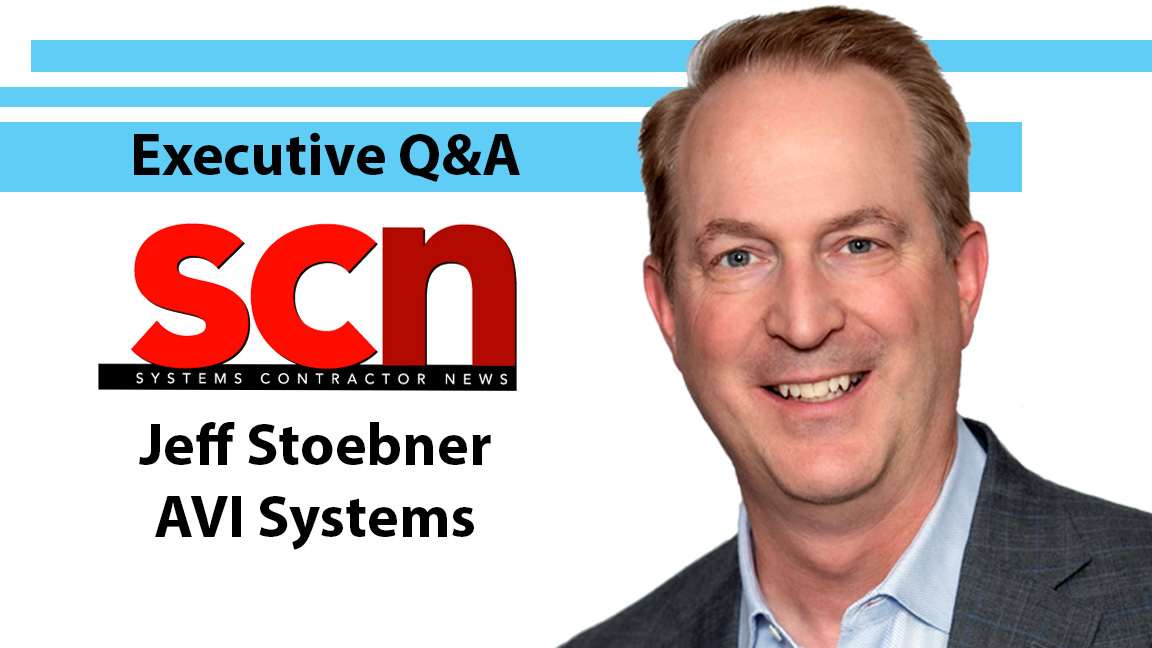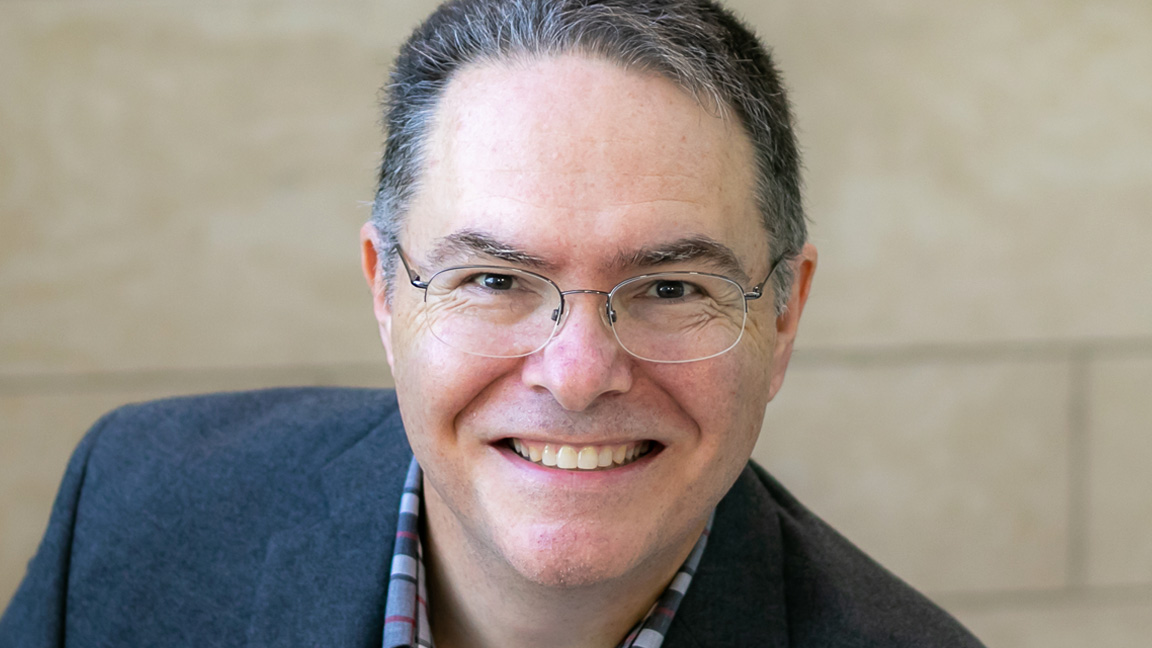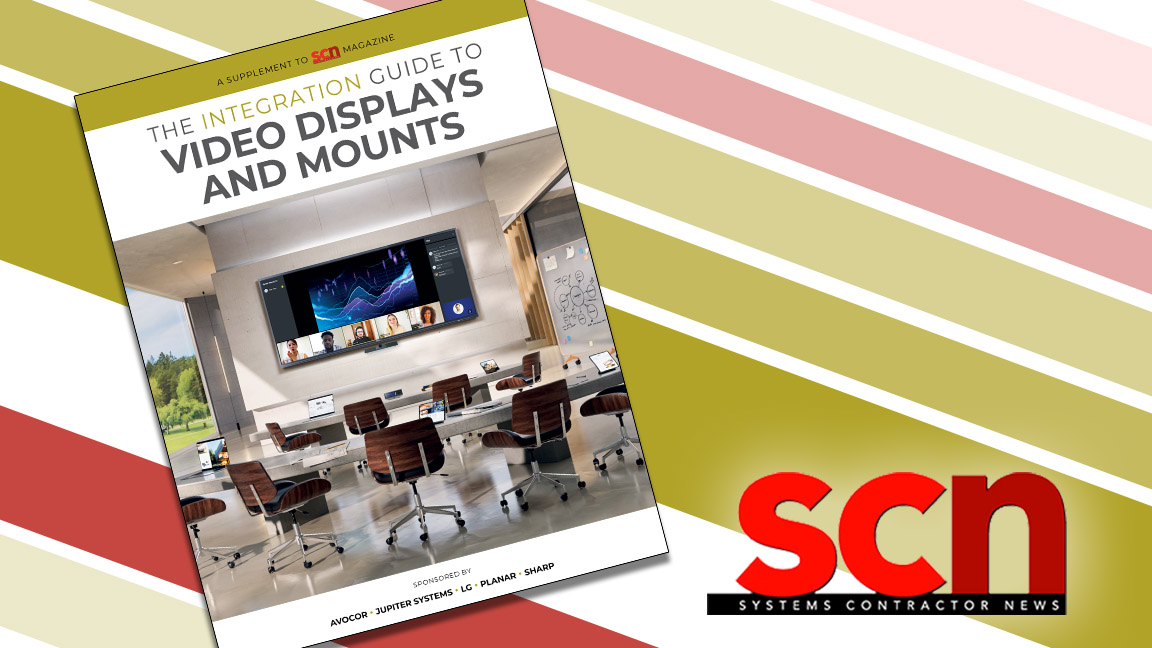SCN Top 50: New World Order
AVI Systems | GPA tops the SCN Top 50 Systems Integrators 2022, and CEO Jeff Stoebner explains the company's recent success.

SCN: How long have you been with this company, and what are your day-to-day responsibilities?
Jeff Stoebner: Next year will be my 30th year full-time with AVI Systems. As CEO, I am responsible for the overall direction of our companies, acquisition and expansion, selection of senior leadership teams, and most importantly staying grounded with our customers.
[SCN Top 50 Systems Integrators 2022]
SCN: AVI Systems | GPA is now at the top of the SCN Top 50 for 2022. How did you do it?
JS: During the worst of the pandemic shutdown, we felt our business would be well positioned to accelerate and we were right (we just didn’t know when). We had to make difficult decisions to adjust in 2020 and early 2021, but knew the demand for technology would increase at some point. Two things worked in our favor: investing heavily in our global business [GPA] in 2020 and leveraging our wholly owned Microsoft consultancy [Magenium Solutons]. This positioned us for a wave of global MS Teams deployments. With more than 20,000 Teams rooms deployed since mid-2021, the business took off. This year, our U.S. sales will exceed $400 million (a significant increase from our pre-pandemic sales of around $275 million), and the sales of our global footprint is more than $1 billion.

SCN: How is the GPA different from an industry alliance?
JS: First, it’s not an alliance. The GPA is its own business entity, its own corporation. It has a dedicated CEO and a corporate staff focused exclusively on global delivery. It has a professional board of directors, of which I am the chairman. It’s the only structure of its kind in our industry and allows us to deliver in 50 countries with as little friction as possible. Our customers can source in local country currency, while we provide global program management. Our customers love this.
SCN: How have supply chain issues impacted your projects?
A daily selection of the top stories for AV integrators, resellers and consultants. Sign up below.
JS: Fortunately, we were in a financial position to source tens of millions in product inventory early in the supply chain crisis. We filled every warehouse we had to the top and filled outsourced warehouses with logistics partners. This allowed us to reduce risk for our customers and deliver shorter lead times than most. We had to retool our ERP systems from just-in-time to more of what we’d call a distribution model. We became our own distributor in many cases.
[Top Integrators 2022: Back to Normal?]
SCN: How did the pandemic change AVI’s business strategy, and what changes will remain moving forward?
JS: We increased our energy around acquisitions. It became evident that the pandemic would accelerate consolidation, and we are well positioned to acquire. We’ve acquired three companies since late 2020 and did a final buyout on a fourth. The demand from global customers is also requiring us to put more resources in the Northeast U.S. and other high-growth markets. We will continue to acquire and expand our footprint. Strategically, we’ve also invested in enterprise management tools from Salesforce and ServiceNow to manage our rapid growth.
Our industry must do a better job of providing "Day Two" support that resolves technical problems before users discover them.
SCN: What post-pandemic trends are you seeing in corporate AV?
JS: Global clients are looking for scalable solutions. Technology in some regards is getting simpler, but deployments are getting very complex. User interfaces in meeting spaces now center around applications like MS Teams and Zoom, instead of fancy remote controls. For now, “what do you want” has been replaced with “what can we get.” For the foreseeable future, AV spend per square foot will increase dramatically as organizations retool for workforces that will rarely gather inside of four-walled rooms.
[SCN Top 50: Protection and Connection in Motion]
SCN: Besides the supply chain, what is one of the greatest challenges the Pro AV industry is facing today?
JS: Adding frontline workers—we compete for talented employees with IT, low-voltage trades, and tech in general. Each of those industries are expanding, as is Pro AV.
SCN: We continue to see plenty of technological innovations in Pro AV, but what does the industry need to do better?
JS: We talk about “AV that performs like IT.” Our industry must do a better job of providing "Day Two" support that resolves technical problems before users discover them. That means we know about problems and fix them faster—and with fewer in-person visits. We must do this with the scale of deployments going on now, and we’ve only seen the beginning.
SCN: What are the pros and cons of being an employee-owned company?
JS: The list of pros is long, but there is one con. The con is that when an owner/founder (in our case, our founder, Joe Stoebner) sells to an ESOP (technical speak for the structure that ends up owning the company), it’s often for a fraction of the eventual enterprise value of the business. That means sellers in an ESOP model may not reap the financial rewards other sellers may with strategic buyers, private equity, or venture capital. Regardless, the Stoebner family is doing just fine, and we are proud that our “employee-family” owns 100% of the equity in the business.
[Top Integrators 2022: Growing Verticals]
The pros include the culture it creates; we call it the “Employee Ownership Culture.” It’s a culture where employees look out for each other and our customers. A culture where we make long-term decisions, not quarterly decisions. A culture where those doing the work on the frontline are directly and profoundly rewarded. It was my father’s dream and he gets all the credit.
SCN: Where do you see the Pro AV industry heading?
JS: Our industry is thriving, it’s rapidly expanding. We must prepare to expand our capacity around the world. We must think much bigger than we have in the past. To be more specific, virtually all new space where people gather or work has AV technology now—that is a trend that will not reverse.

Mark J. Pescatore, Ph.D., has been the content director of Systems Contractor News since 2021. During his career, he's hosted and programmed two ongoing regional industry trade shows (including Future B2B's AV/IT Summit), produced and hosted podcasts and webinars focused on the professional video marketplace, taught more than a dozen college communication courses, co-authored the book Working with HDV, and co-edited two editions of The Guide to Digital Television.
